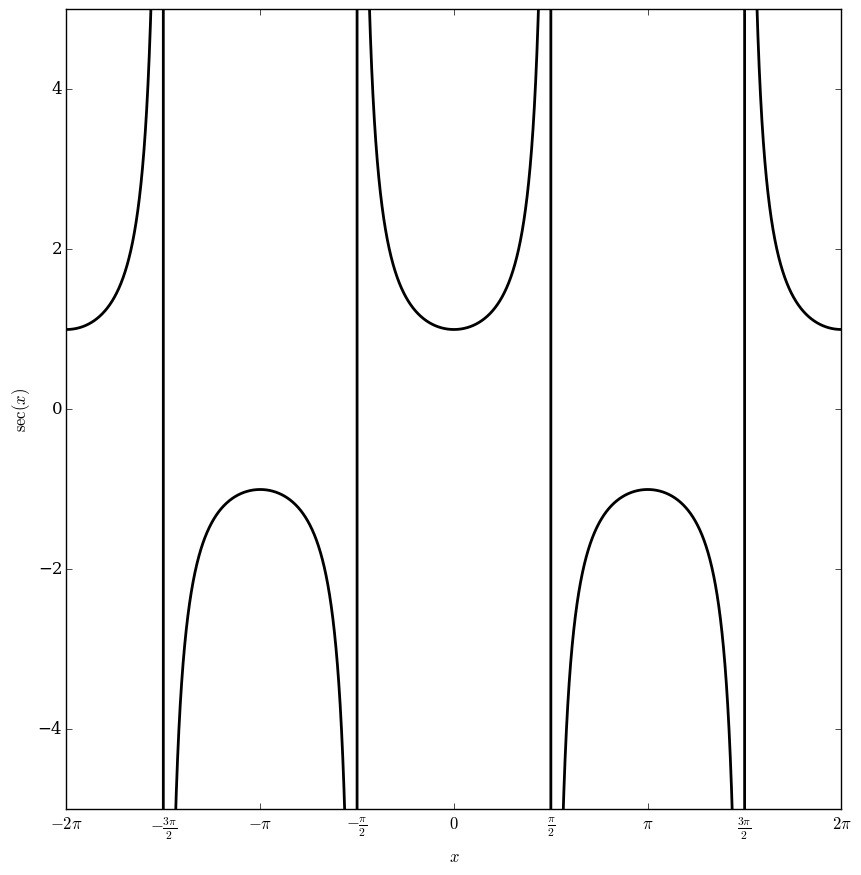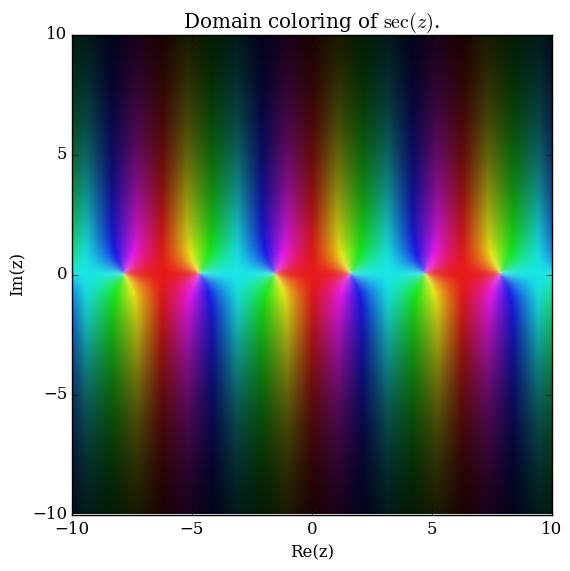Difference between revisions of "Secant"
From specialfunctionswiki
(Created page with "500px") |
|||
| (16 intermediate revisions by the same user not shown) | |||
| Line 1: | Line 1: | ||
| − | [[File: | + | __NOTOC__ |
| + | |||
| + | The secant function is defined by | ||
| + | $$\sec(z)=\dfrac{1}{\cos(z)},$$ | ||
| + | where $\cos$ denotes the [[cosine]]. | ||
| + | |||
| + | <div align="center"> | ||
| + | <gallery> | ||
| + | File:Secantplot.png|Graph of $\sec$ over $[-2\pi,2\pi]$. | ||
| + | File:Complexsecantplot.png|[[Domain coloring]] of $\sec$. | ||
| + | File:Trig Functions Diagram.svg|Trig functions diagram using the unit circle. | ||
| + | </gallery> | ||
| + | </div> | ||
| + | |||
| + | =Properties= | ||
| + | [[Derivative of secant]]<br /> | ||
| + | [[Relationship between secant, Gudermannian, and cosh]]<br /> | ||
| + | [[Relationship between cosh, inverse Gudermannian, and sec]]<br /> | ||
| + | |||
| + | =See Also= | ||
| + | [[Arcsec]] <br /> | ||
| + | [[Sech]] <br /> | ||
| + | [[Arcsech]] <br /> | ||
| + | |||
| + | =References= | ||
| + | * {{BookReference|Handbook of mathematical functions|1964|Milton Abramowitz|author2=Irene A. Stegun|prev=Cosecant|next=Cotangent}}: 4.3.5 | ||
| + | |||
| + | {{:Trigonometric functions footer}} | ||
| + | |||
| + | [[Category:SpecialFunction]] | ||
Latest revision as of 20:45, 26 February 2017
The secant function is defined by
$$\sec(z)=\dfrac{1}{\cos(z)},$$
where $\cos$ denotes the cosine.
Domain coloring of $\sec$.
Properties
Derivative of secant
Relationship between secant, Gudermannian, and cosh
Relationship between cosh, inverse Gudermannian, and sec
See Also
References
- 1964: Milton Abramowitz and Irene A. Stegun: Handbook of mathematical functions ... (previous) ... (next): 4.3.5


